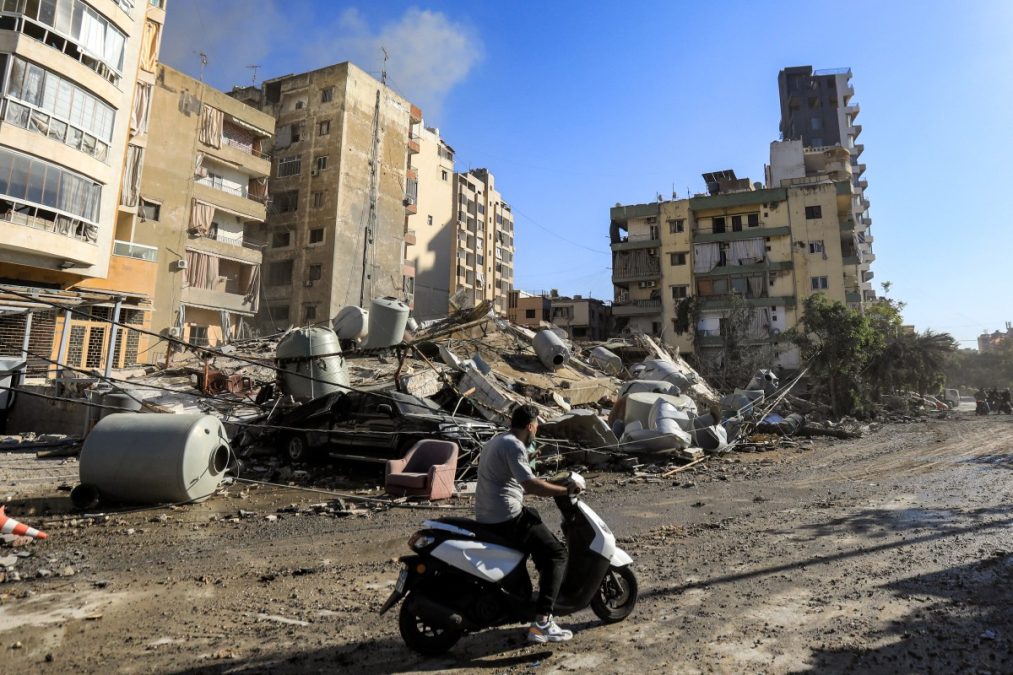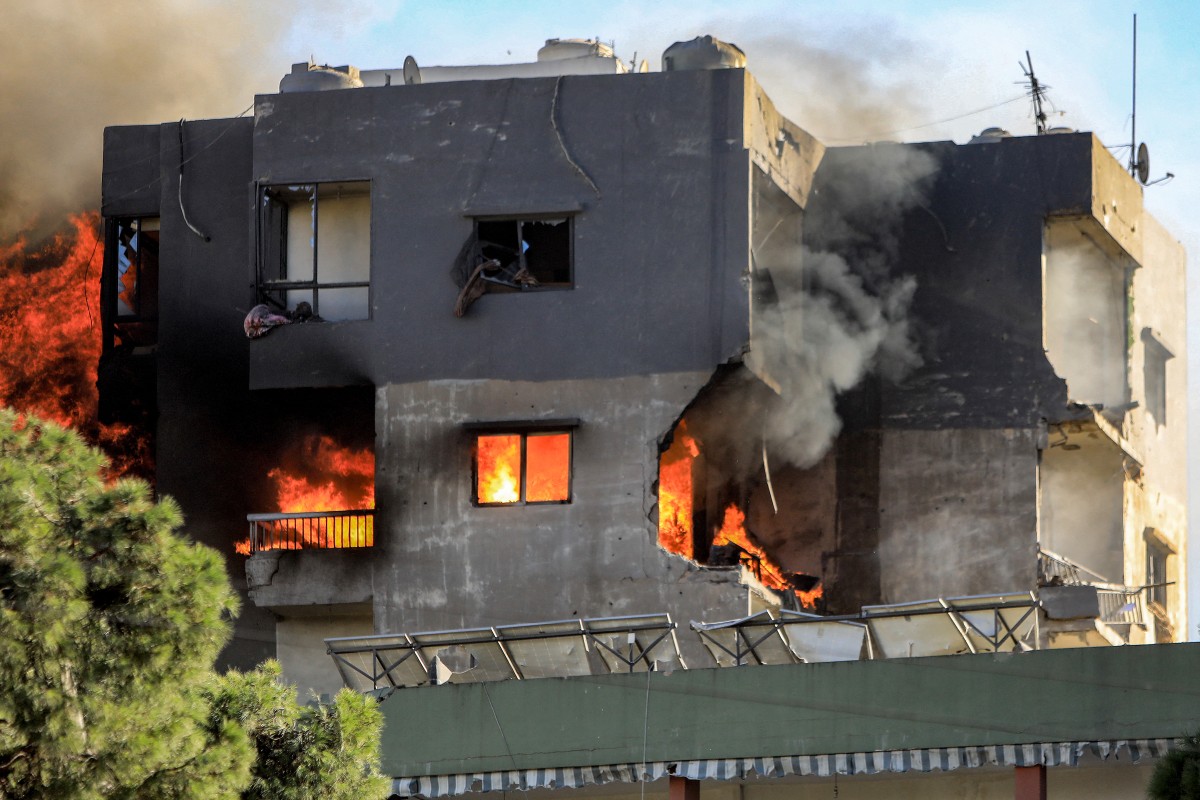Jerusalem, Undefined – Israel’s army confirmed Tuesday it “eliminated” Hezbollah’s Hashem Safieddine, apparent successor of slain leader Hassan Nasrallah, in a strike in a southern Beirut suburb three weeks ago.
“It can now be confirmed that in an attack approximately three weeks ago, Hashem Safieddine, the head of Hezbollah’s Executive Council, and Ali Hussein Hazima, the head of Hezbollah’s Intelligence Directorate, were killed along with other Hezbollah commanders,” the army said in a statement.
Hezbollah has not yet issued a statement regarding the claim.
On October 8, Israeli Prime Minister Benjamin Netanyahu said that the military has “taken out” Safieddine, without specifically naming him.
In an address to the people of Lebanon, Netanyahu said Israeli forces “took out thousands of terrorists, including (Hezbollah leader Hassan) Nasrallah himself and Nasrallah’s replacement and the replacement of his replacement.”
Late on Tuesday, the army said that Israel’s air force “conducted a precise, intelligence-based strike on Hezbollah’s main intelligence headquarters,” in the southern Beirut suburb of Dahiyeh, Hezbollah’s stronghold in the Lebanese capital three weeks ago.
The statement added that over 25 Hezbollah militants were present in the headquarters during the strike, “including Bilal Saib Aish, who was in charge of aerial intelligence gathering”.
A member of Hezbollah’s decision-making body and a distant relative of Nasrallah, Safieddine was out of contact since Israeli strikes on Beirut weeks ago, a high-level Hezbollah source said at the time.
A source close to Hezbollah told AFP in early October that the deeply religious cleric Safieddine, who had good relations with Hezbollah backer Iran, was the “most likely” candidate for the party’s top job.
Grey-bearded and bespectacled, Safieddine bore a striking resemblance to his distant cousin Nasrallah, but was several years his junior, aged in his late 50s or early 60s.

“We have reached Nasrallah, his replacement and most of Hezbollah’s senior leadership”, the Israeli army’s chief Lieutenant General Herzi Halevi said in a statement late on Tuesday after the confirmation of Safieddine’s death.
After nearly a year of war with Palestinian Islamist movement Hamas in Gaza, Israel shifted its focus to Lebanon in late September, vowing to secure its northern border threatened by cross-border fire from Hamas’s Lebanese ally Hezbollah.
Israel ramped up its air strikes on Hezbollah strongholds around the country and sent in ground troops late last month, in a war that has killed at least 1,552 people since September 23, according to an AFP tally of Lebanese health ministry figures.
The Israeli military issued new calls for residents to evacuate areas in the southern suburbs of capital Beirut on Tuesday evening, warning of imminent attacks.
In recent days the military has targeted Hezbollah’s financial assets across the country.
Hezbollah, meanwhile, has continued to fire rockets and missiles at Israel.
“As of 23:00 (2000 GMT), approximately 140 projectiles that were fired by the Hezbollah terrorist organization have crossed from Lebanon into Israel today,” the military said in a statement late on Tuesday.
Blinken urges Israel to reach Gaza truce
US Secretary of State Antony Blinken urged Israel’s leaders to work towards a ceasefire in Gaza on Tuesday, the latest call for a truce coming as fighting raged in the territory’s aid-starved north and Israeli strikes hit Lebanon.
Blinken is on his 11th trip to the Middle East since Hamas’s attack on Israel more than a year ago triggered the Gaza war, and his first since Israel’s conflict with Lebanon’s Iran-backed Hezbollah escalated last month.
The top US diplomat told Israel’s leaders that the army’s killing of Hamas leader Yahya Sinwar last week presented an “opportunity” for a truce and the release of the hostages Hamas seized during the October 7, 2023 attack.
“I believe very much that the death of Sinwar does create an important opportunity to bring the hostages home, to bring the war to an end and to ensure Israel’s security,” Blinken said as he met Israeli President Isaac Herzog in Tel Aviv.
During an earlier discussion with Prime Minister Benjamin Netanyahu in Jerusalem, Blinken pressed for more aid to be allowed into the besieged Palestinian territory as concerns rise for tens of thousands of civilians trapped by a major Israeli assault in the hard-to-reach north.
A US official said that Netanyahu had recognised the “seriousness” of Blinken’s warnings to ramp up aid access to Gaza, “but it’s the results that matter”.
Washington has warned it may suspend some of its military assistance if Israel does not quickly improve humanitarian access to the area.
Netanyahu also denied claims that Israel was implementing a controversial plan for an intense siege to starve out northern Gaza, the US official said.
Previous efforts by the United States — Israel’s top ally and main arms supplier — to end the Gaza war and contain the regional fallout have failed, as did a previous bid to secure a temporary ceasefire in Lebanon.
Blinken’s visit comes as Israel weighs its response to Iran’s missile attack on October 1.
Defence Minister Yoav Gallant told Blinken that Israel expects Washington’s support “following our attack on Iran”, his office said.
Blinken again called for a “diplomatic resolution” in Lebanon and compliance with a UN resolution that ended Israel’s last war with Hezbollah in 2006.
After Israel, Blinken will visit Saudi Arabia on Wednesday, a last-minute change from plans to head to Jordan caused by scheduling issues, a US official said.
South Beirut evacuation orders
Fighting meanwhile raged in Lebanon, with the Israeli military again striking the southern suburbs of Beirut on Tuesday evening, after issuing new calls for residents to evacuate the area.
Separately, Israel’s army confirmed Tuesday it “eliminated” Hezbollah’s Hashem Safieddine, apparent successor of slain leader Hassan Nasrallah, in a strike in a southern Beirut suburb three weeks ago.
After nearly a year of war in Gaza, Israel shifted its focus to Lebanon in late September, vowing to secure its northern border to allow tens of thousands of Israelis displaced by cross-border fire to return to their homes.
Israel ramped up its air strikes on Hezbollah strongholds around the country and sent in ground troops late last month, in a war that has killed at least 1,552 people since September 23, according to an AFP tally of Lebanese health ministry figures.
On Tuesday, an Israeli strike on the eastern Hermel region killed five people, while five more died from a separate strike in the southern city of Nabatiyeh, the ministry said.
An Israeli air strike near a Beirut hospital overnight killed 18 people, four of them children, according to the health ministry.
The strike flattened four buildings near the Rafic Hariri Hospital, Lebanon’s biggest public health facility which is located outside Hezbollah’s traditional strongholds, an AFP correspondent reported.
Resident Ola Eid said she was tossing children chocolate and candy from her balcony when her neighbourhood was bombed.
“Before they could even catch them, the first strike hit, then a second. I saw the children ripped apart,” she told AFP.
UN human rights chief Volker Turk said he was “appalled” by the strike.
Another Israeli strike on Tuesday came just minutes after a Hezbollah official cut short a news conference in response to an Israeli evacuation warning, an AFP correspondent said.
Hezbollah also continued to fire into Israel through Tuesday.
“As of 23:00 (2000 GMT), approximately 140 projectiles that were fired by the Hezbollah terrorist organization have crossed from Lebanon into Israel today,” the Israeli military said.
‘Bodies lying on the streets’
In the Gaza Strip, Israel launched a major air and ground assault in northern Gaza earlier this month, vowing to stop Hamas militants from regrouping in the area.
Despite the exodus of tens of thousands of civilians, around 400,000 have been trapped by the fighting, the UN agency for Palestinian refugees warned last week.
Paramedic Nevin al-Dawasah said she was trapped for 16 days in a shelter for displaced people in the Jabalia refugee camp, the focus of the recent fighting.
When an Israeli army drone equipped with loudspeakers told them to evacuate, they started leaving “but suddenly there was shelling” that killed some people and wounded others, Dawasah told AFP.
The only medical facility still only partially functioning in the targeted area of northern Gaza has “no medicine or medical supplies”, warned Kamal Adwan Hospital director Hossam Abu Safia.
“People are being killed in the streets, and we can’t help them. Bodies are lying on the streets.”
The war was sparked by Hamas’s unprecedented attack on Israel on October 7 last year, which resulted in the deaths of 1,206 people, mostly civilians, according to an AFP tally of Israeli official figures.
Israel’s retaliatory offensive has killed 42,718 people in Gaza, also mostly civilians, according to figures from the Hamas-run territory’s health ministry which the UN considers reliable.








